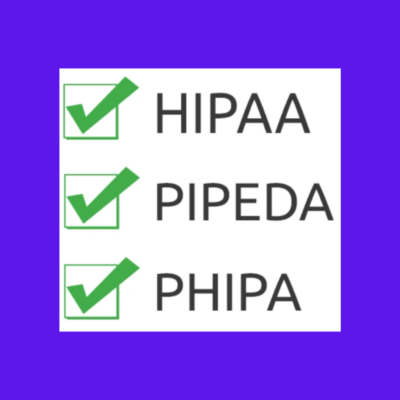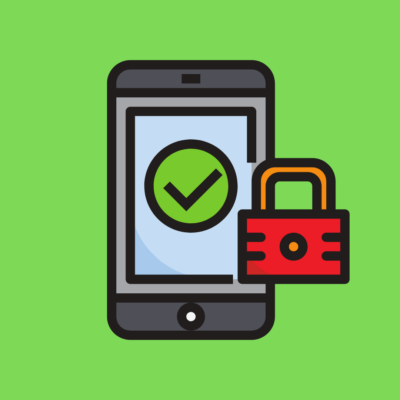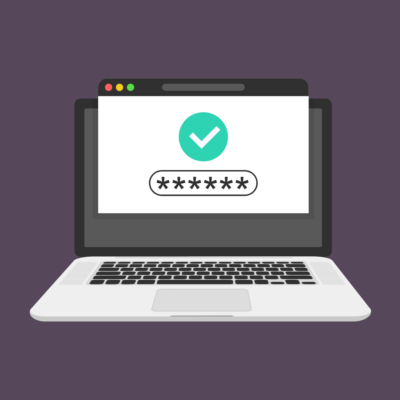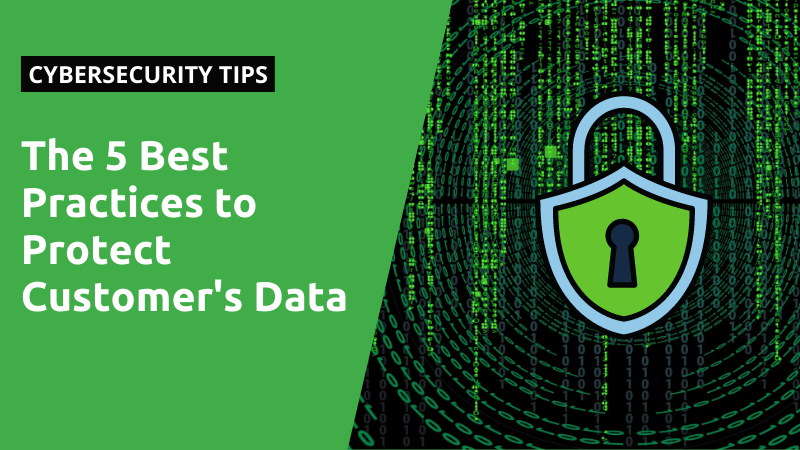Why is it important to protect customers’ personal information?
Due to the nature of hybrid and remote work, personally identifiable information and PII are being shared online more consistently and hackers are taking the opportunity to breach data that remains unprotected.
When deciding to do business with you, your clients trust that you will keep their information secure. Primarily if this information is used for personal identification or business operations that could be harmful to the individual if it were to be leaked.
Keeping customer data safe is not only a great way to build a relationship with your customers but also to maintain the reputation you worked hard to build. All it takes is one breach for your reputation to go downhill. This is why it is important to implement best practices to protect your customers’ data.
Here are 5 ways you can protect customer data today:
1. Eliminate data after it is no longer needed
 It’s nearly impossible to have your information leaked when it no longer exists, right? So, if you want to protect your customers’ data from hackers, you should consider deleting files that are no longer in use. For example, when you no longer require certain information from your clients, such as personally identifiable information (i.e. SIN number, Driver’s license) or health information (i.e. DOB, Address) instead of leaving the files in your computer vulnerable to breaches, you can delete them and then overwrite them using file-shredding software. If you want to take customer data protection to the next level, having a system that automatically deletes unwanted or expired files is a great strategy.
It’s nearly impossible to have your information leaked when it no longer exists, right? So, if you want to protect your customers’ data from hackers, you should consider deleting files that are no longer in use. For example, when you no longer require certain information from your clients, such as personally identifiable information (i.e. SIN number, Driver’s license) or health information (i.e. DOB, Address) instead of leaving the files in your computer vulnerable to breaches, you can delete them and then overwrite them using file-shredding software. If you want to take customer data protection to the next level, having a system that automatically deletes unwanted or expired files is a great strategy.
With platforms like TitanFile, you can set expiration dates for files and conversations with customers so that all information will be removed from the server. No hackers will ever be able to access your information.
2. Comply with regional data protection laws
 There’s really no simpler solution to protecting your customers’ data than following data privacy regulations. Regulations vary by region (i.e. PIPEDA in Canada, HIPAA in the US, and GDPR in the EU) and are in place to govern how businesses collect, use, and protect the privacy of client information. By following these regulations, you are committed to ensuring the highest level of protection for your customers which gives them peace of mind and credibility for you. Ensure that you are keeping up to date with regulations by either allocating an employee to monitor changes or using a system that is compliant with these standards.
There’s really no simpler solution to protecting your customers’ data than following data privacy regulations. Regulations vary by region (i.e. PIPEDA in Canada, HIPAA in the US, and GDPR in the EU) and are in place to govern how businesses collect, use, and protect the privacy of client information. By following these regulations, you are committed to ensuring the highest level of protection for your customers which gives them peace of mind and credibility for you. Ensure that you are keeping up to date with regulations by either allocating an employee to monitor changes or using a system that is compliant with these standards.
TitanFile is HIPAA, PIPEDA, and GDPR compliant so any information you upload to the platform is automatically compliant with your regional regulations. Your customer’s data is always protected with the highest standards of security.
3. Secure your devices
 The working professional is rarely ever settled in one place. You need your customers’ data to be easily accessible regardless of where you are in order to do your job. Oftentimes, client data is accessed on your mobile devices and tablets and not just the work desktop. If you are using public wifi, chances are the network is not secure and you are making all the data on your device easily accessible to third parties. You should limit the use of public wifi networks and opt to use secure networks (password protected) on your devices. If they are unavailable, then make sure you have a virtual private network (VPN) downloaded to your device. VPN’s, such as Nord, create a private network from public wifi networks and make it difficult for hackers to access your data due to custom IP addresses. Securing your devices is the easiest and safest way to protect your customers. If you haven’t already, do it now.
The working professional is rarely ever settled in one place. You need your customers’ data to be easily accessible regardless of where you are in order to do your job. Oftentimes, client data is accessed on your mobile devices and tablets and not just the work desktop. If you are using public wifi, chances are the network is not secure and you are making all the data on your device easily accessible to third parties. You should limit the use of public wifi networks and opt to use secure networks (password protected) on your devices. If they are unavailable, then make sure you have a virtual private network (VPN) downloaded to your device. VPN’s, such as Nord, create a private network from public wifi networks and make it difficult for hackers to access your data due to custom IP addresses. Securing your devices is the easiest and safest way to protect your customers. If you haven’t already, do it now.
4. Update your software
 Update! Update! Update! We cannot stress this enough. Computer systems and software become more vulnerable to attacks when they are not updated with the newest software developments. Updated software usually includes bug fixes and enhancements that would otherwise keep your computer more susceptible to breaches and your customer data unprotected. The only exception to this is if there is a known security risk associated with a software update. If that’s the case, it’s better to wait for the next update.
Update! Update! Update! We cannot stress this enough. Computer systems and software become more vulnerable to attacks when they are not updated with the newest software developments. Updated software usually includes bug fixes and enhancements that would otherwise keep your computer more susceptible to breaches and your customer data unprotected. The only exception to this is if there is a known security risk associated with a software update. If that’s the case, it’s better to wait for the next update.
Next time that system update pops up on your device asking “New updates are available: Would you like to install?”, as tempting as it is to click “Remind me tomorrow”, make sure you press “Update now”. Future you and your clients will be thankful.
5. Limit access to data
 Not everyone in your workplace will need access to your customer’s data. If you are working with a small team on a collaborative project it is okay to share files within that team. However, the community manager does not need access to your client’s personal information like the account lead would.
Not everyone in your workplace will need access to your customer’s data. If you are working with a small team on a collaborative project it is okay to share files within that team. However, the community manager does not need access to your client’s personal information like the account lead would.
Limiting the number of people who have access to the data lessens the vulnerabilities of internal breaches. Ways to limit access include enabling password protection for different levels of authority (i.e. only authorized users can access certain files within a larger folder) and enabling two-factor authentication to neutralize the risk of compromised passwords for authorized users attempting to access data.
For secure file-sharing, TitanFile allows users to prevent access to documents from unauthorized users. Only the intended recipients can access files via a secure channel. In addition, all data is automatically encrypted to prevent data breaches. Protecting your customers’ data doesn’t get easier than this.
Key Takeaways:
- Ridding of data that is no longer in use will prevent that information from being susceptible to data breaches.
- Make sure you understand what laws apply to your region so that your business is compliant with customer data protection regulations.
- Be consistent with updating your system’s software. It’s a simple proactive measure and it works.
- Not everyone needs access to your data. Limit the number of people that have passwords, authority, and access to your files.
If you want to make sure your employee network is implementing the best practices to protect their customer’s data, make sure to share this article with the links below.
